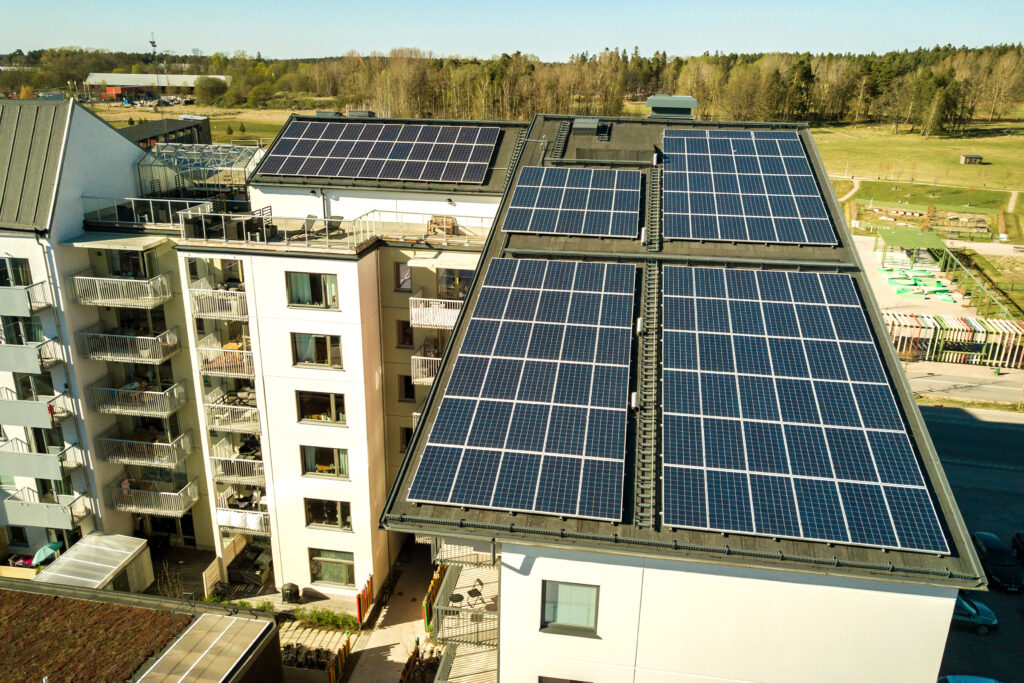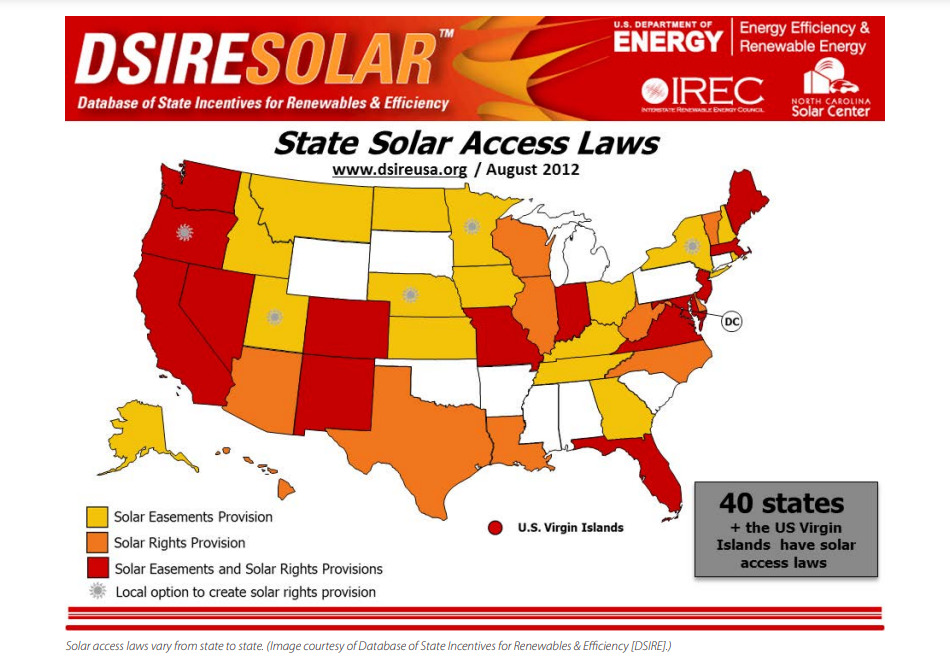The purpose of HOAs is to preserve the value of the houses within the community.
You might be eager to benefit from solar energy as a homeowner. However, you will probably require their consent if an HOA governs your property. To achieve this goal, HOAs may restrict the improvements and alterations that residents are “allowed” to make to their homes, including installing solar panels.
Fortunately, states and local governments around the country are progressively protecting solar access. This article will go through solar access rights, where they’re protected, and how to deal with your HOA to put solar panels on your property.
Can my homeowners’ association block me from putting solar panels?

Solar access rights are becoming more widespread as more states recognize the benefits of clean energy and solar grows in popularity. However, in some cases, an HOA can block you from installing solar panels by rejecting your proposal.
Solar access rights – laws and easements
Solar access legislation and solar easements are the two main categories of solar access rights that safeguard a citizen’s right to go solar. Both protect your capacity to use solar energy for your home, but they focus on various difficulties homeowners face.
Solar access laws
Your HOA cannot legally prevent you from putting solar panels on your property if you live in a state with a solar access law. These laws give more protection to solar customers by allowing HOAs reasonable restrictions on solar systems. For example, the HOA retains its right to influence the design of a rooftop solar array. If this is the case, HOA members may still need to request permission before the solar installation.
Solar easements
A solar easement protects property owners’ access to sunlight. All solar easements are voluntary; even if your state or local government permits, your neighbor must first consent to the arrangement. If, in any case, your neighbor sells their home, the original easement arrangement with them will carry on to the new homeowners.
What are the states who have solar access rights?
- Alabama
- Arkansas
- Connecticut
- Michigan
- Mississippi
- Oklahoma
- Pennsylvania
- South Carolina
- South Dakota
- Wyoming
These ten states currently have laws governing solar access rights at the state level. DSIRE notes that these rules are constantly changing. Many states have different procedures to preserve your right to solar access in addition to legislation and easements.

What would happen if you were in a state without solar access laws?
If you need your HOA’s approval, study their rules and regulations to determine if policies work in your favor. Gather support from your neighbors who favor solar in your community. The advantages of solar homes in the area should be emphasized if you want to win the HOA board’s support. However, the worst-case scenario is not getting approval from your HOA. It means you won’t be able to install a solar panel system.
Community Solar
Community solar allows homeowners to go solar without installing equipment on their property. It is a large-scale solar array, often known as a solar farm, is built and linked to the local grid. Subscribers save between 5 and 15% on their annual electric expenditures.
Does your HOA need a draft design or have special conditions?
Let DroneQuote start by getting your thoughts and opinions and explaining the options relative to the system design. We understand that all homes are different. We can design your system with the panels on a section of the roof not visible from the street or otherwise in a way that would be accepted by the HOA. Let’s get you started here.
